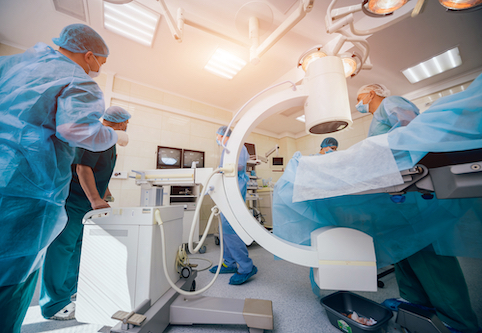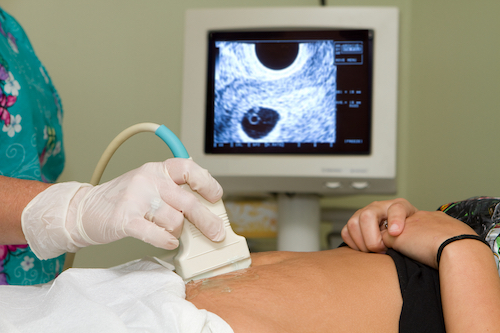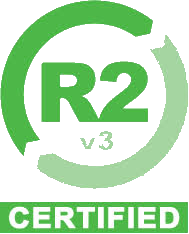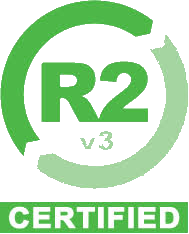Published on December 7, 2021, Updated on December 22, 2021
Equipment for Recycling in Health Clinics and Surgical Facilities in Washington
Patient treatment does not necessarily have to take place in a hospital setting, nor is it always ideal for them to do so. Clinics and ambulatory surgical facilities in Washington usually provide patients with the convenience of receiving treatment on the same day that they see them, saving them the time and money that would otherwise be spent checking in and out of the hospital many times.
The area of medicine is always developing in Washington State, and during the past, three or four decades, new and improved technology has been developed to make patient treatment more precise, more efficient, and less intrusive. Inevitably, old, out-of-date medical equipment must be removed to make place for the installation of new technology. 1 Green Planet knows that everything a health clinic does is done with the goal of protecting the patient’s safety and privacy at the forefront of their minds. As a result, we not only adhere to EPA standards when handling potentially hazardous materials, but we also adhere to HIPAA regulations when disposing of patient data that is no longer required.
The precise sorts of equipment utilized in a clinic or operation facility are determined by the type of specialty being done there. This section provides a broad overview of the electronics and other gadgets that are frequently seen in various types of clinics.


The Recycling of Healthcare Imaging Technologies in Washington State
Taking a peek inside a patient’s body is frequently necessary for a clear diagnosis. Every effort is made to avoid surgery whenever feasible by using one or more imaging modalities. Each device has a unique set of capabilities and is better suited for examining specific bodily structures. It is necessary to give each with care; some require extra caution because of the possibility of radiation exposure for the patient. Old devices must be properly disposed of since imaging technology in Washington is always improving.
Disposal of X-Ray Machines
In addition to being quick and straightforward to administer, X-rays are also reasonably priced. A patient must be exposed to a certain amount of radiation for an X-ray to be taken, and the equipment used to produce the images might include potentially harmful substances such as chemicals. The vast majority of X-rays are now taken digitally, although some are still processed on film for historical purposes. The silver nitrate ingredient that is present on X-ray films must be removed before the films may be disposed of properly.
Recycling of Computed Tomography (CT/CAT) Scan Equipment
Computing tomography, often known as CT or CAT scans, is a form of X-ray that creates images of the body that are sharper and more detailed than normal film X-rays. It is used to diagnose and treat a wide range of medical conditions. To do this, the patient must remain still on a motorized platform that goes slowly around a circular CT scanner while a narrow, fan-shaped X-ray beam is sent across his or her body.
Magnetic Resonance Imaging (MRI) Machine EWaste
A magnetic resonance imaging (MRI) system may provide pictures of soft tissues without exposing the patient to radioactive materials. It is instead necessary to send the patient through a powerful magnetic field, which generates an image by momentarily realigning the protons within the body. Patients with metal implants should not undergo magnetic resonance imaging (MRI), and they must remain completely motionless during the scan to avoid blurring of the picture.
Ultrasound Device Recycling
High-frequency sound waves are bounced off the tissues of the body to produce a picture, which is created by ultrasound. The sound waves are communicated by a probe that comes into contact with the patient’s skin, and pictures are shown on a computer screen as a result of the transmission. It does not emit any radiation and is often regarded as the safest imaging technique available in Washington.
Noninvasive Surgery Device Recycling
Infection and bleeding are two risks associated with open surgery. In general, patients recover more quickly and experience fewer difficulties after noninvasive surgery, which requires just minor surgical incisions to accommodate probes. Noninvasive surgery may be divided into two types:
Scopes: Diagnostic and therapeutic treatments are carried out by manually introducing a small camera and microsurgical equipment into the body. Arthroscopy, endoscopy, and laparoscopy are all examples of procedures that are performed on the joints.
Robotic Surgery: Similarly, microsurgical instruments and small cameras are used in these operations, but instead of the surgeon directing the equipment physically, he or she manipulates the tools through the use of a computer interface. In addition to general surgery, robotic surgery may be used for gynecological, urological, and cardiothoracic operations, among other treatments.
HIPAA Compliant and ISO Certified
In addition to imaging and surgical equipment, clinics and surgery centers make use of computer consoles, hard drives, and servers, all of which have the potential to store sensitive patient information. In order to comply with government laws, 1 Green Planet disposes and recycles these things in a manner that is neither harmful to the environment or compromises patient confidentiality. Please contact us if you want further information or to organize a pickup near Washington State.









